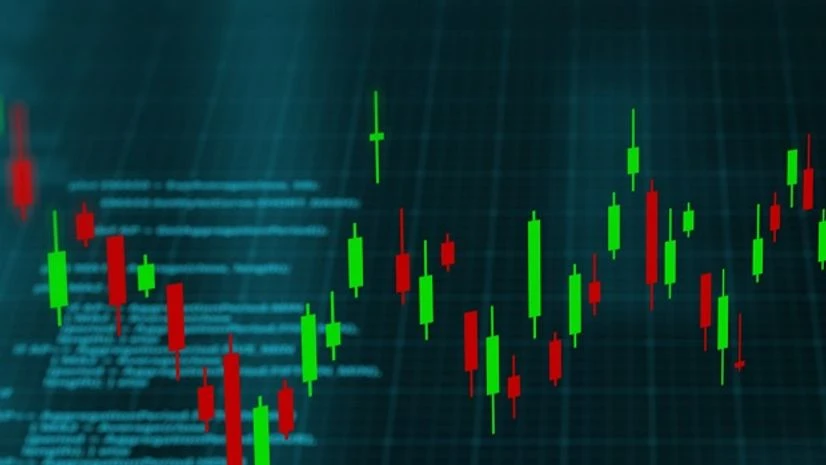By Ritvik Carvalho and Wayne Cole
LONDON (Reuters) - Global shares treaded water on Monday as sharp falls in gold and oil prices briefly spooked sentiment, while the dollar reached four-month highs on the euro after an upbeat U.S. jobs report lifted bond yields.
European shares were mixed in early trading, as a fall in commodity prices weighed on Britain's blue-chip index, while other regional indexes stayed near recent highs with earnings season winding down.
The FTSE Eurofirst 300 index was trading flat, Britain's FTSE 100 index dipped 0.3% and Germany's DAX 30 fell 0.3%.
MSCI's All Country World Index, which tracks shares across 49 countries was flat on the day.
Markets were shaken early by a sudden dive in gold as a break of $1,750 triggered stop loss sales to take it as low as $1,684 an ounce. It was last down 1% at $1,745.
More From This Section
Brent also sank 2% on concerns the spread of the Delta variant of the coronavirus would temper travel demand.
Holidays in Tokyo and Singapore made for thin trading conditions, adding to the volatility. Yet after an initial fall, MSCI's broadest index of Asia-Pacific shares outside Japan recovered to be up 0.1%.
They were helped by China's blue chips index which added 1.3%. Japan's Nikkei was shut but futures were trading a modest 20 points below Friday's close.
Nasdaq futures slipped 0.1% and S&P 500 futures 0.2%.
Chinese trade data out over the weekend undershot forecasts, while figures out Monday showed inflation slowed to 1% in July offering no barrier to more policy stimulus.
The U.S. Senate came closer to passing a $1 trillion infrastructure package, though it still has to go through the House.
Investors were still assessing whether Friday's strong U.S. payrolls report would take the Federal Reserve a step nearer to winding back its stimulus.
"What we're seeing is a little bit of early profit-taking on the back of fear that tapering will come in earlier in September. But as you can see, it has little impact because the effect of a better economy far outweighs the substitution effect of higher interest rates," said Sebastien Galy, senior macro strategist at Nordea Asset Management.
However, the pace of tapering was still up in the air and would decide when an actual rate increase came, he said. The Fed is buying $120 billion of assets a month, so a $20 billion taper would end the programme in six months whilst a $10 billion tapering approach would take a year.
The spread of the Delta variant could argue for a longer taper with U.S. cases back to levels seen in last winter's surge with more than 66,000 people hospitalised.
Figures for July CPI due this week are also expected to confirm inflation has peaked, with prices for second-hand vehicles finally easing back after huge gains.
There are four Fed officials speaking this week who will no doubt offer enough grist for markets looking for clues on the timing of tapering.
In the meantime, stocks have been mostly underpinned by a robust U.S. earnings season. BofA analysts noted S&P 500 companies were tracking a 15% beat on second quarter earnings with 90% having reported.
"However, companies with earnings beats have seen muted reactions on their stock price the day following earnings releases, and misses have been penalized," they wrote in a note.
"Guidance is stronger than average but consensus estimates for two-year growth suggest a slowdown amid macro concerns."
Financials firmed on Friday as a steeper yield curve is seen benefiting bank earnings, while also penalising the tech sector where valuations are sky high.
Yields on U.S. 10-year notes were up at 1.29% in the wake of the jobs report, having hit their lowest since February last week at 1.177%.
That jump gave the dollar a broad lift and knocked the euro back to $1.1760, and briefly to its lowest since April at $1.1740. The dollar likewise climbed to 110.22 yen and away from last week's trough of 108.71.
That took the U.S. currency index up to 92.882 and nearer to the July peak of 93.194.
Oil prices eased further after suffering their largest weekly drop in four months amid worries coronavirus travel restrictions would threaten bullish expectations for demand.
Brent fell $1.29 to $69.41 a barrel, while U.S. crude lost $1.34 to $66.94.
(Reporting by Ritvik Carvalho; additional reporting by Wayne Cole in Sydney; editing by Robert Birsel)
(Only the headline and picture of this report may have been reworked by the Business Standard staff; the rest of the content is auto-generated from a syndicated feed.)

)
